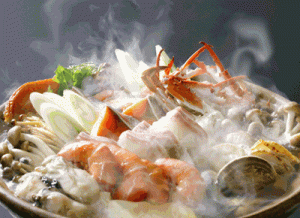
Thyroid patients include all kinds of people such as hyperthyroidism, hypothyroidism, nodules, and thyroiditis. What can not be eaten is really not a single sentence.
Today we will take a look at the various thyroid diet taboos on the Internet that are unreasonable.
Internet transmission 1: Cannot eat foods containing iodine
Conclusion: Partially correct
It contains iodine as large as kelp and seaweed, as small as chilli boiled water. It’s hard to not eat any iodine at all!
Therefore, the “no-iodine diet” should be changed to a “low-iodine diet”, which refers to not eating foods with high iodine content, such as iodized salt, kelp, seaweed, and seafood.

In fact, most thyroid patients, including those with nodules, do not need “low iodine”, except for the following two categories:
❶ Hyperthyroidism: Thyrotoxicosis caused by Hashimoto’s and subthyroiditis, and hyperthyroidism syndrome of pregnancy commonly seen in pregnant women are not “true hyperthyroidism”. Graves disease, nodular goiter, thyroid adenoma, etc. cause “true hyperthyroidism.” Low-iodine diet can make “True Hyperthyroidism · Thyroid” lose the raw materials for production.
❷ Radioactive iodine scan or treatment: This is the examination and treatment method commonly used for patients with thyroid cancer and “true hyperthyroidism”. A low-iodine diet can allow the deteriorated thyroid cells to fully absorb radioactive iodine, ensuring the accuracy of the examination and the effectiveness of the treatment.
Internet Transmission 2: Eat less cruciferous vegetables
Conclusion: a small part is correct
Cruciferous vegetables (such as broccoli, radish, cabbage, etc.) contain isothiocyanate that inhibits the synthesis of thyroid hormones, leading to goiter.

However, the above reaction occurs only when there is a lot of isothiocyanate in the body, and the conversion into a specific amount is roughly equivalent to eating 500~1000 grams of cruciferous vegetables raw in a short period of time. This is not something that can be done easily, after all. It’s not tasty and it’s very supportive. After cooking, the isothiocyanate in vegetables will be greatly reduced.
People who have goiters (such as large neck disease, adolescent goiter, and goiter during pregnancy) due to iodine deficiency or increased iodine demand can avoid eating raw cruciferous vegetables as much as possible.
Internet transmission 3: Don’t eat spicy and irritating food
Conclusion: error
The Internet is not limited to thyroid patients, and all patients are not allowed to eat spicy and irritating food, can you believe it?

Whether it can be spicy or not is only related to personal taste and tolerance. If you eat spicy and uncomfortable, you should eat less regardless of whether you have thyroid disease.
Net 4: Eat less greasy food
Conclusion: completely correct

Regardless of whether there is thyroid disease or not, you should eat less greasy, fried foods, because these types of foods are inherently unhealthy, and people who have elevated blood lipids due to hypothyroidism should pay more attention.
Online transmission 5: Stimulating food will make thyroid nodules larger
Conclusion: Too wrong, too lazy to analyze
There are many similar folk rumors. However, the definitions of stimulating food in different regions have not been unified, so there is really nothing to analyze.

Many foods called stimulating food, such as chicken, duck and fish, are not only delicious, but also an ideal source of high-quality protein. It is a pity not to eat them.
Comments